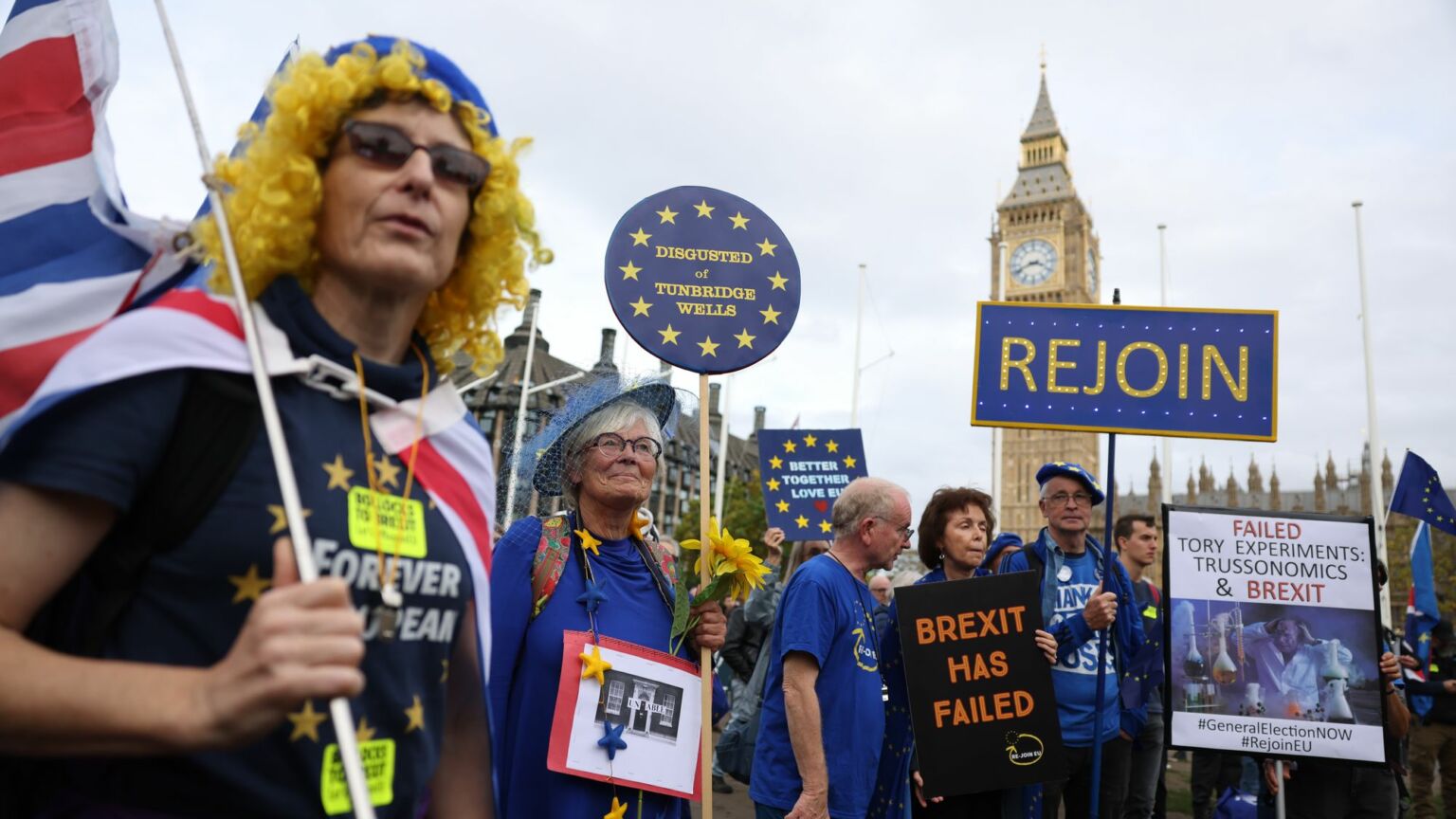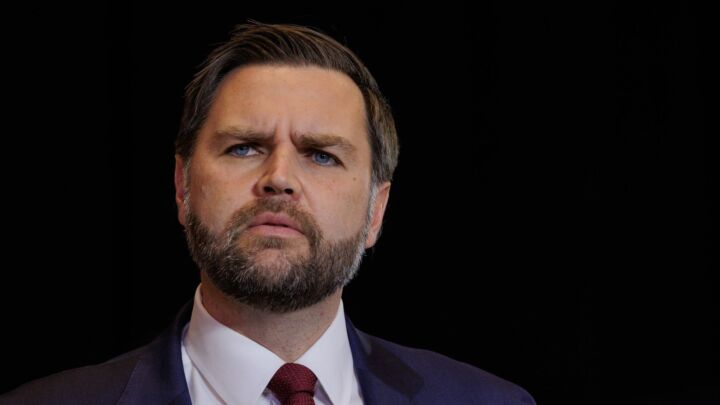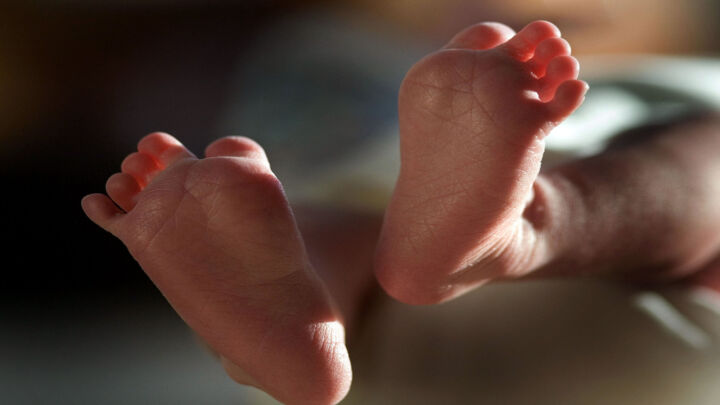Those Remoaners fleeing for Europe are in for a rude awakening
Our supposedly ‘civilised’ and ‘sensible’ continental cousins are as ripe for revolt as we are.

Want unlimited, ad-free access? Become a spiked supporter.
So many derangement syndromes have come to the fore in recent years – Trump DS and flag DS prime among them – that it’s nice to recall that the original, Brexit Derangement Syndrome, can still get a look-in.
Brexit Derangement Syndrome had its most flagrant and unhinged representation in Steve Bray. Bray, you might recall, was the man who protested loudly outside parliament for a whopping 847 days, announcing in a highly well-balanced way, ‘We are all going to end up in hell after Brexit happens’. He was last heard of in April, when he was cleared in court of flouting police orders banning him from playing anti-Brexit edits of the Muppet Show and Darth Vader theme tunes through large amplifiers outside parliament. He also blasted out a ditty he re-named ‘Brexit Tragedy’ to the tune of the ‘Yellow Submarine’: ‘We all live in a Brexit tragedy, a Brexit tragedy, a Brexit tragedy.’ You can understand why poor Susan Colson, former Tory minister Suella Braverman’s chief of staff, said of Bray’s racket: ‘I did quite well until about 10 o’clock… By the time it came to lunchtime I was quite exhausted, and intimidated and harassed, and I just wanted to go home.’
The embarrassing ‘We love EU’ marches have stopped – probably because, towards the end, everyone involved could have sheltered quite comfortably in an old-fashioned phone box. But there are still quite a few EU posters and stickers polluting the streets, with that irritating circle of stars looking quite at home among the other fast-fading fringe flags such as those of Pride and Palestine.
Now, however, people have found another more subtle and individualistic way to register their petulance (sorry, protest) about a political decision that went against them a decade ago. Namely, taking up citizenship of another nation, and thus getting one’s greedy mitts on two passports.
Regrettably, some of my best friends are these people. I like to see the expression on their faces when they talk about why they’re doing it. Yes, they’ll admit that one reason is pure self-interest, so they can live and work more easily – cheaply, they generally mean – abroad, which beastly Brexit allegedly put the kibosh on.
At this point, I like to bring up the fact that the blessed EU was never about the freedom to travel. Brits were taking off to and living in Europe long before the EU was even a gleam in Konrad Adenauer’s eye. Think of a penniless Laurie Lee in 1934 deciding to go to Spain on a whim and ending up assisting the anti-fascists. Or the artists’ colonies on the Greek islands which acted as a magnet for the louche of all nations. Or the teenage Beatles’ first residency in Hamburg. At this point, my friends tend to look fleetingly cross and confused, and having failed to play the freedom-to-roam card, fall back on the ‘brotherhood of man’, the last resort of most modern scoundrels. They remember to make a noble, self-sacrificing face, implying that they have two passports for the good of humankind, and to show their thorough disapproval of the rise of Reform.
I find it puzzling to consider the countries my friends are seeking their second passports from – from Ireland to Lithuania. I’m sceptical about flinging oneself into the open arms of Johnny Foreigner and thinking they’re going to be putting out the bunting from sheer molten gratitude. But it’s a matter of degrees. The Irish might be hostile to the English, but when it comes to people, often Jewish, whose grandparents came here from Eastern Europe – or even Germany – it’s a whole different league of loathing. People who go down the foreign-passport route often talk of finding their roots. But I’ve always thought taking the citizenship of a country whose populace would happily have seen you dead in a ditch within living memory is weird, to say the least.
Still, the foreign-passport trend is as strong as ever. Recently, my friend, the journalist Katie Glass, decided that she fancied a Lithuanian passport, a country her Jewish forebears left in a hurry for obvious reasons. ‘We’re called Litvaks’, she informed me, so proudly that I couldn’t help but wish her well, misguided though I believed her quest to be. Setting off blithely by train from Waterloo, her mood dampened when she got to Warsaw, where she was suddenly affected by considering how so many Jewish people were killed so violently there. With Lithuania yet to come, she pondered, ‘I think I may have been a bit Pollyanna-ish about this’. However, when she arrived in Vilnius, her aesthetic considerations had come to the fore. ‘Is very gorgeous here – a Litvak Paris. Reconsidering citizenship again!’ Another friend was even more frivolous about her desire, this time for an Irish passport: ‘I just want to feel like an international woman of mystery!’
The fact is that people can still pretty much travel and live in Europe all they like – indeed, most people would agree that porous borders, not closed ones, are the bigger problem nowadays. Brexit means a few more minutes in a queue at the airport and a few more quid for a visa. If you’ve got to make that into a huge performance about whether or not democracy – the Brexit referendum – is a good thing, you’re either incredibly self-important, really tight with money, or both.
But you can’t outrun the demos and their demonstrations, no matter where you land. The countries that people turned to because they imagined they were more ‘civilised’ are now themselves experiencing popular protests against mass immigration – Ireland especially. In saintly Germany, that post-Brexit beacon of civilisation, Berlin’s chief of police warned last year that Jews and gay people are not safe in those parts of the notoriously liberal city with large Arab-heritage populations. ‘There are areas, and we must be honest at this stage’, he said, ‘where I would advise people who wear a kippah, or are openly homosexual or lesbian, to be more attentive’.
If the AfD gains power in Germany (it is currently topping the polls), it will be amusing to read all the Guardian pieces about how those smuggies feel being the proud bearers of the passport represented by the most right-wing government in Europe. But the unbearably self-important Citizens of Nowhere will doubtless find some other wretched European country to inflict themselves on – while cravenly holding on to their ‘joint nationality’, of course.
If only they would bail out of Blighty for good, and leave our plucky little island to those of us whose feelings go deeper than hooking up to a flag of convenience whenever times get tough. I must say that this is one kind of pan-Europeanism I’m very much in favour of.
Julie Burchill is a spiked columnist. Follow her Substack, Notes from the Naughty Step, here.
£1 a month for 3 months
You’ve hit your monthly free article limit.
Support spiked and get unlimited access.
Support spiked – £1 a month for 3 months
spiked is funded by readers like you. Only 0.1% of regular readers currently support us. If just 1% did, we could grow our team and step up the fight for free speech and democracy.
Become a spiked supporter and enjoy unlimited, ad-free access, bonus content and exclusive events – while helping to keep independent journalism alive.
———————————————————————————————————————————–
Exclusive January offer: join today for £1 a month for 3 months. Then £5 a month, cancel anytime.
———————————————————————————————————————————–
Monthly support makes the biggest difference. Thank you.











Comments
Want to join the conversation?
Only spiked supporters and patrons, who donate regularly to us, can comment on our articles.